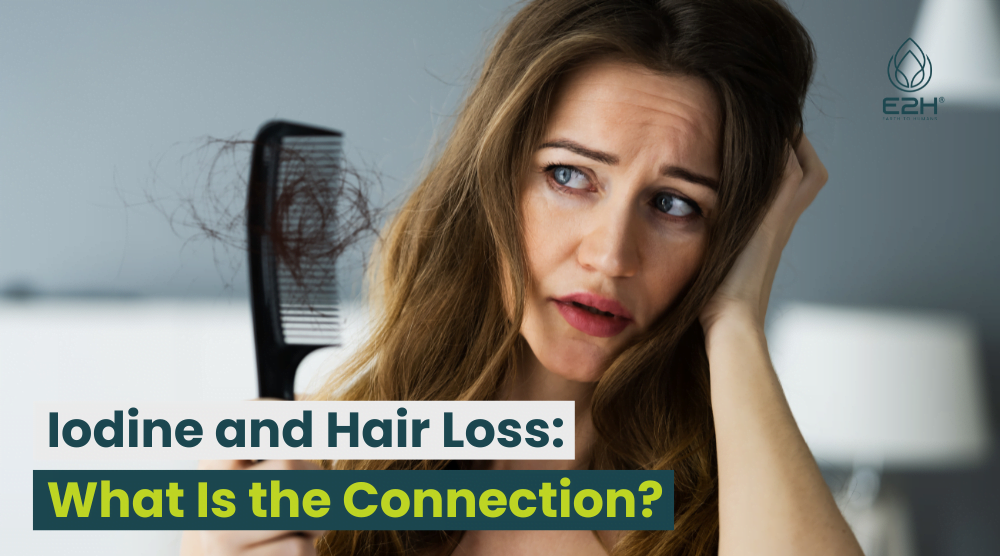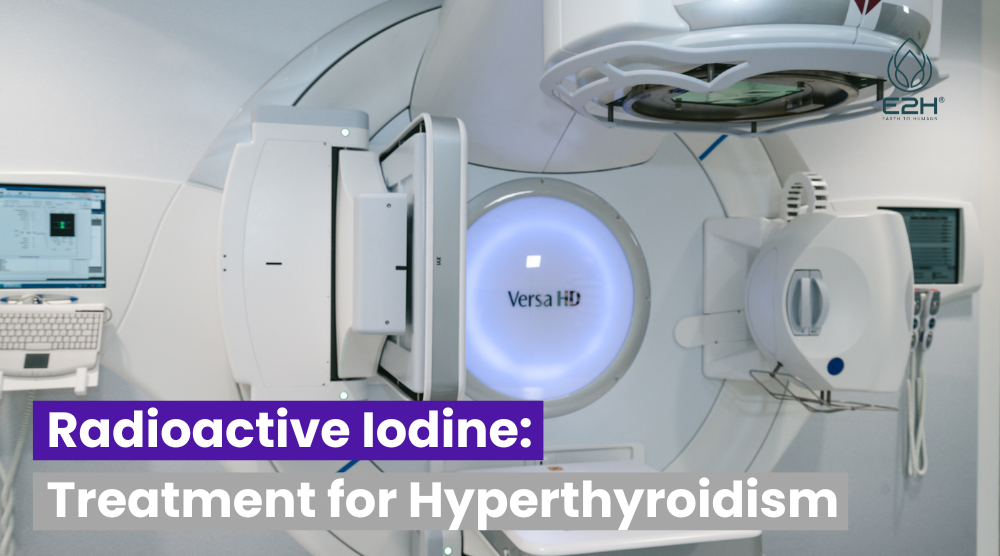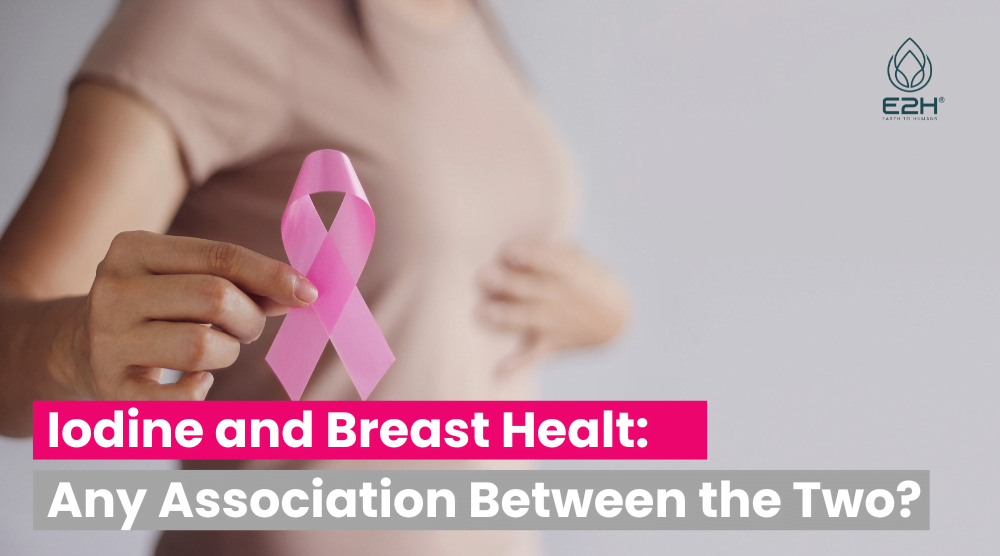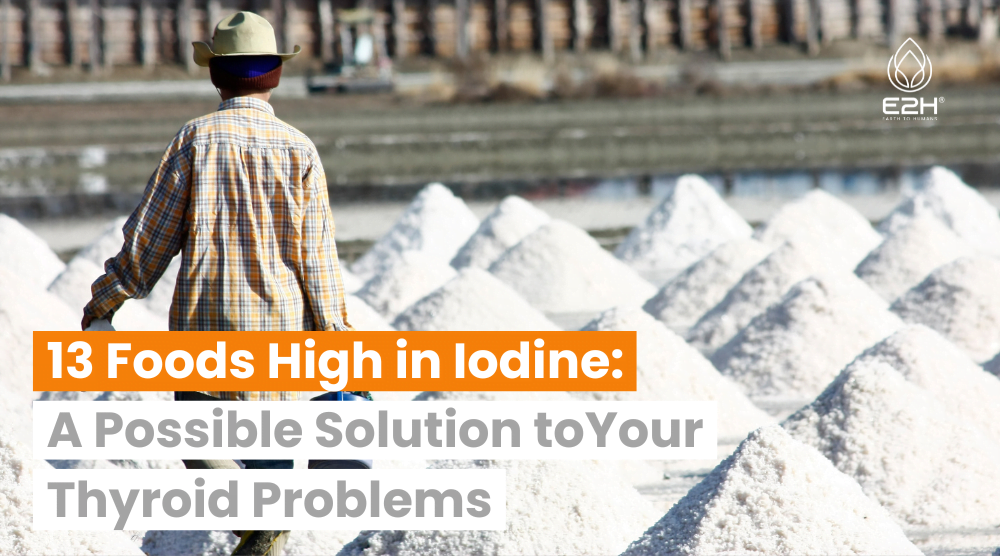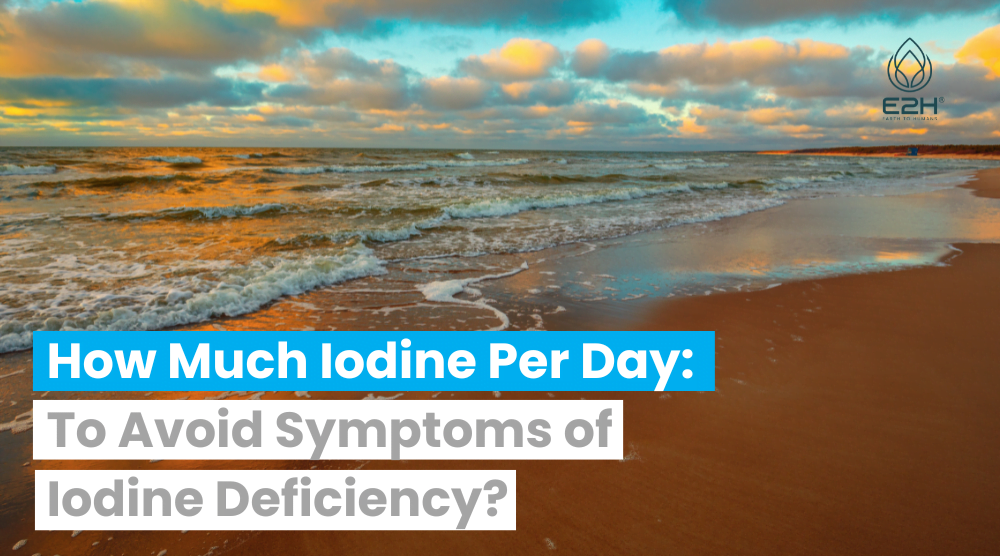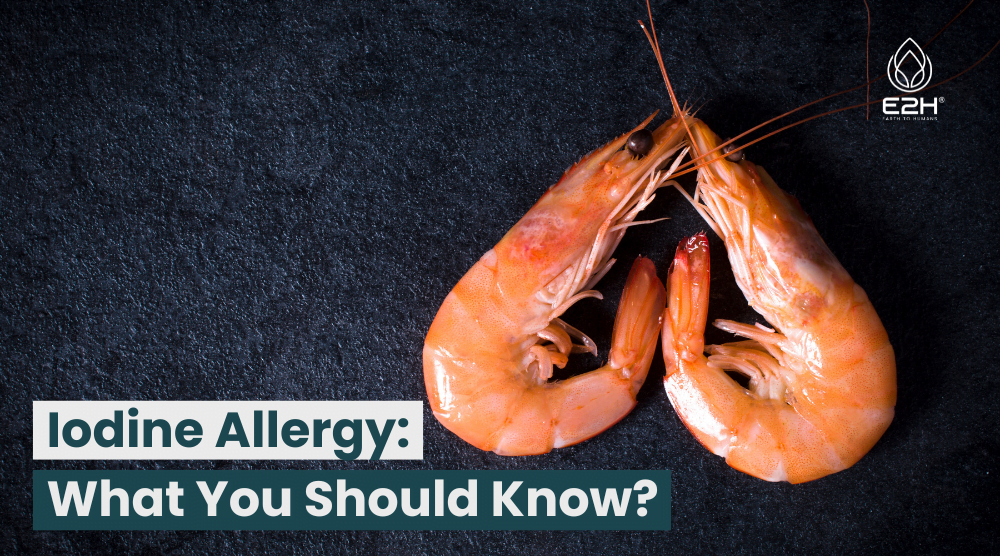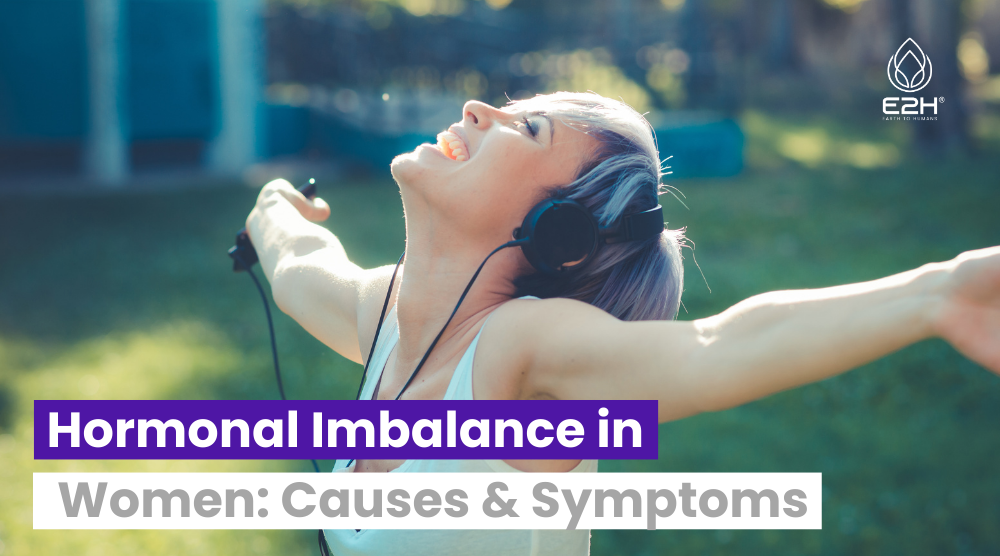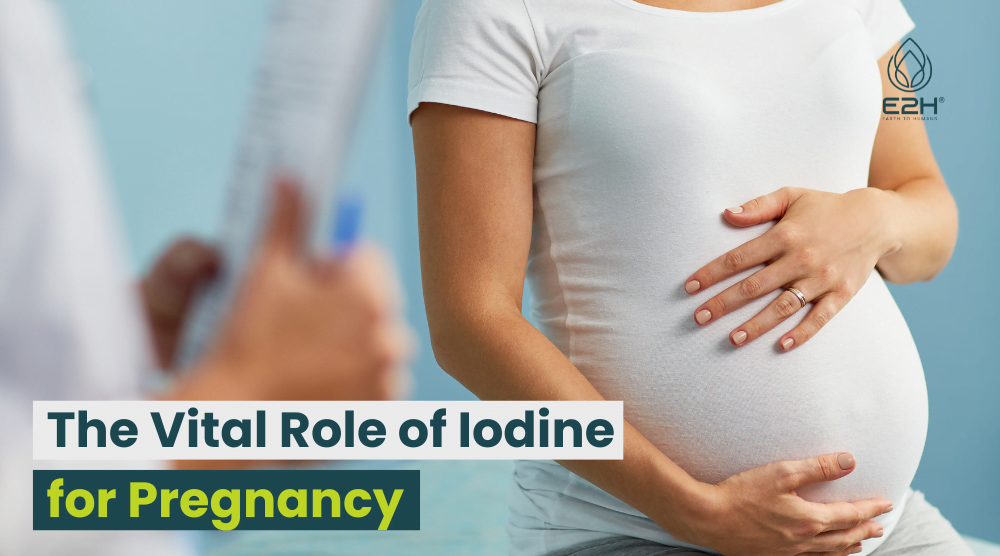Connection Between Iodine and Hair Loss; Iodine deficiency can contribute to hair loss. Adequate iodine levels are necessary for proper thyroid function, and an underactive thyroid due to iodine deficiency can lead to hair thinning and loss.
Why does your body need Iodine?
Iodine is a trace mineral that your body can not synthesize. It plays a crucial role in the metabolism, growth, and development of your organs and hair. This mineral is used to produce thyroid hormones. Lack of these hormones can lead to some serious hair and health issues. In the following section, you will learn the benefits of iodine for healthy hair growth.
How does iodine enhance hair health?
You might not believe it, but the thyroid significantly affects your hair. This is because the thyroid gland produces thyroxine and triiodothyronine, which influence hair growth [1]. That’s why iodine deficiency can make your hair rough and dry, one of the most common problems leading to hair fall among women. Severe hypothyroidism (low thyroid hormone levels) can cause telogen effluvium. This hair-shedding disorder leads to non-permanent hair loss [2].
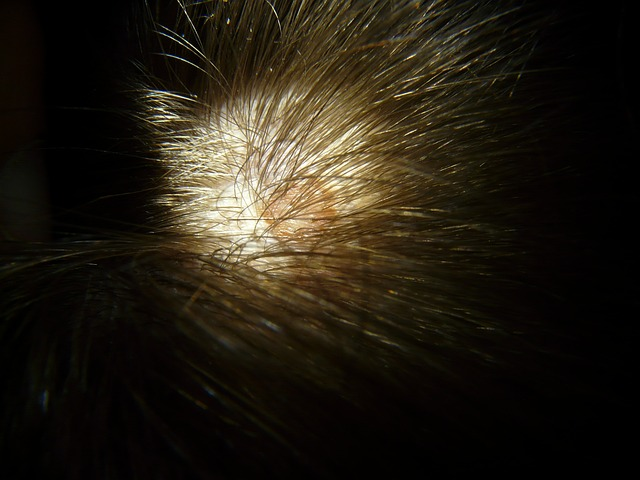
Furthermore, this condition is linked to female pattern hair loss, also known as androgenic alopecia [2]. Iodine also has antimicrobial properties [3]. Therefore, you need sufficient iodine intake to strengthen your hair and protect your scalp from infections.
What happens when your body develops iodine deficiency?
Iodine deficiency can have detrimental effects on your hair. Hair fall and balding are the most common signs of thyroid hormone imbalance. The more hair-related symptoms that can be due to iodine are:
- Coarse hair
- Premature graying
- Thinning of hair and reduction in hair volume
- Occurrence of bald patches in hairy areas of the head
Other hypothyroidism symptoms are frequent weight gain, muscle weakness, dizziness, insomnia, high cholesterol levels, anxiety, and goiter [4]. They are pretty severe symptoms, but not to fret! Every problem has a solution, and you can maintain your iodine level by adapting the below techniques.
How to use iodine to promote the growth of hair follicles?
Low levels of iodine can make your hair dry or coarse, while high levels can make them gray early. So to avoid all these issues, you need to come into action as soon as possible by moving towards these efficient sources of Iodine.
Topical application
The quickest way to avoid hair damage is by applying white-colored Iodine. Apply it on your clean and dried hair daily, especially on bald patches, to eliminate the hair issues caused by severe iodine imbalance disorders.
Iodine-rich foods
White iodine can work externally on your hair, but you should take iodine-rich foods to aid hair growth.
Iodized salt
Salt labeled as “iodized” can be an easy method to treat hypothyroidism. It is the most common source of iodine that helps grow your hair.
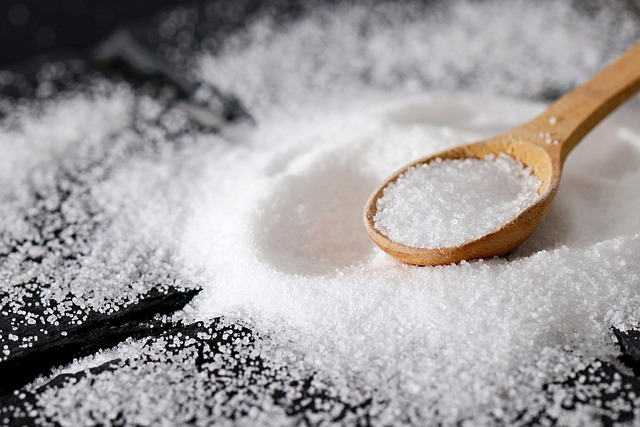
Iodine supplements
Taking 150 micrograms/day of iodine [5]. However, it is always best to use nascent iodine supplements in liquid form to see maximum results.
How much iodine should I take daily for hair loss?
The recommended daily intake of iodine varies depending on age, gender, and specific health conditions. For adults, the general guideline is 150 micrograms (mcg) per day. However, if hair loss is suspected to be related to iodine deficiency, it’s essential to consult with a healthcare professional for personalized advice.
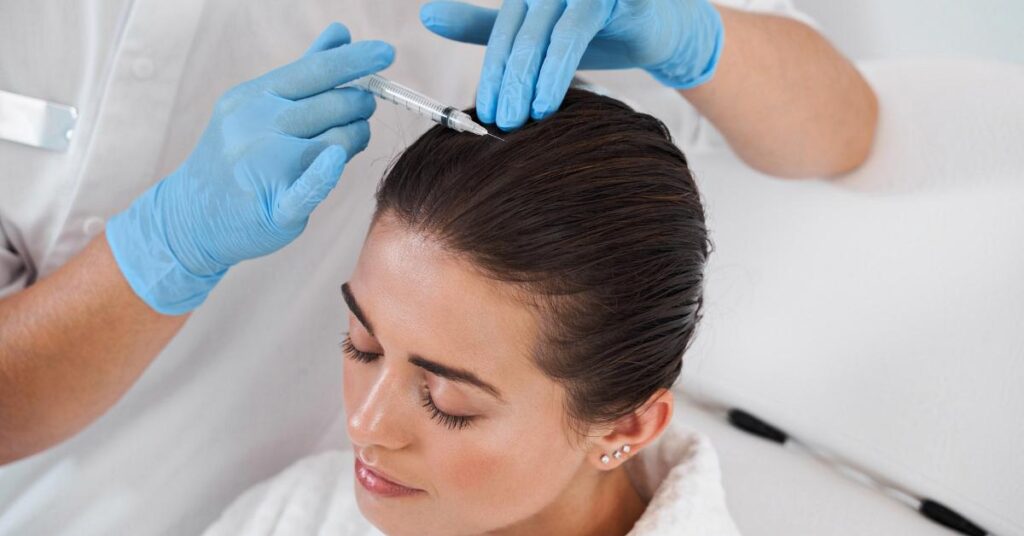
They may recommend iodine supplementation based on individual needs and test results. It’s important not to exceed the recommended daily intake, as excessive iodine can also have adverse effects. A healthcare professional can assess your specific situation and provide appropriate guidance to address hair loss and ensure safe iodine supplementation.
How can I control hair loss in my thyroid?
Controlling hair loss related to thyroid issues requires addressing the underlying thyroid condition. Consult with a healthcare professional to diagnose and treat your specific thyroid disorder. This may involve medication, lifestyle changes, or dietary adjustments. Ensure you are receiving proper treatment for thyroid dysfunction to restore hormonal balance and minimize hair loss.
Additionally, adopt a healthy hair care routine, including gentle handling, avoiding harsh chemicals or heat styling, and maintaining a balanced diet rich in essential nutrients like iron, zinc, and biotin. Regular scalp massages and reducing stress levels can also promote hair health. Patience and consistency are key, as it may take time to see improvements in hair loss.
FAQs
Is there a connection between iodine and hair loss?
Yes, there is a connection between iodine and hair loss. Iodine deficiency can lead to an underactive thyroid, which can contribute to hair thinning and loss.
How does iodine deficiency cause hair loss?
Iodine is essential for proper thyroid function. When there is an insufficient iodine intake, the thyroid may not produce enough thyroid hormones. This can disrupt the hair growth cycle, leading to hair loss.
Can increasing iodine intake reverse hair loss?
If hair loss is caused by iodine deficiency, increasing iodine intake may help reverse the condition. However, it’s important to consult with a healthcare professional for proper diagnosis and guidance on iodine supplementation to address individual needs effectively.
Conclusion
In conclusion, the connection between iodine and hair loss is evident. Iodine deficiency can lead to an underactive thyroid, disrupting the hair growth cycle and causing hair thinning and loss. Ensuring adequate iodine intake is crucial for maintaining proper thyroid function and promoting healthy hair. However, it’s essential to consult with a healthcare professional to determine the underlying cause of hair loss and receive personalized guidance on iodine supplementation. Remember, maintaining a balanced diet and overall thyroid health is key to supporting optimal hair growth and minimizing hair loss.
References
1. Rousset, Bernard, et al. “Chapter 2 Thyroid Hormone Synthesis and Secretion.” Nih.gov, MDText.com, Inc., 2 Sept. 2015, www.ncbi.nlm.nih.gov/books/NBK285550/. Accessed 16 Oct. 2022.
2. Freinkel, R. K., and N. Freinkel. “Hair Growth and Alopecia in Hypothyroidism.” Archives of Dermatology, vol. 106, no. 3, 16 Oct. 2022, pp. 349–352.
3. Cooper, Rose A. “Iodine Revisited.” International Wound Journal, vol. 4, no. 2, 16 Oct. 2022, pp. 124–137, 10.1111/j.1742-481x.2007.00314.x.
4. National Institute of Diabetes and Digestive and Kidney Diseases. “Hypothyroidism (Underactive Thyroid) | NIDDK.” National Institute of Diabetes and Digestive and Kidney Diseases, 7 July 2019, www.niddk.nih.gov/health-information/endocrine-diseases/hypothyroidism. Accessed 16 Oct. 2022.
5. National Institutes of Health. “Office of Dietary Supplements – Iodine.” Nih.gov, 2017, ods.od.nih.gov/factsheets/Iodine-HealthProfessional/. Accessed 16 Oct. 2022.
